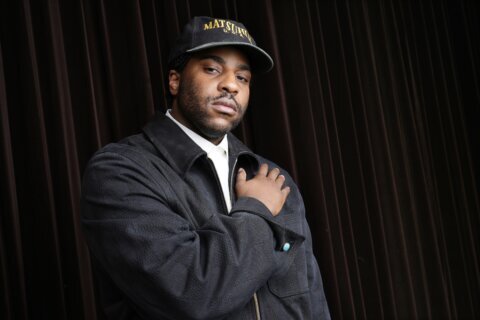The arts rarely have anything good to say about critics. That they’re not generally the hero of many stories is, at the very least, understandable. More often they’re portrayed as joyless, cruel and a little pathetic; themselves failed artists who live to take down others, or, worse, sycophants in search of a famous friend.
Without getting into any sort of philosophical, or even factual debate about the nature of the kind of person drawn to criticism (besides perhaps a staunch antipathy to either job security or amassing wealth), it is safe to say that the drama critic of “ The Critic ” takes all the worst stereotypes to hysterical heights.
Set in the 1930s in London, Ian McKellen is Jimmy Erskine, a veteran theater critic whose reviews can make or break a play or a performer. He has a monastic devotion to telling the truth, as entertainingly as he can, and knows what he must sacrifice to do so.
“The drama critic is feared and reviled for the judgement he must bring,” McKellen says in an ominous voiceover. “(He) must be cold and perfectly alone.”
When one woman dares to chat him up after a play, offering her take on the material and performances, he swiftly tries to have her removed from the restaurant claiming he must be protected from the general public. When an actress, Nina Land (Gemma Arterton), confronts him about his wildly inconsistent criticisms of her (how can she be both plump and emaciated, she wonders), he refuses to apologize. And he scoffs when the new boss at the newspaper, David Brooke (Mark Strong), implores him to tone it down: “Be kinder,” he says. “More beauty, less beast.”
But what starts as satire spirals into a wildly messy tragedy with contrivance upon contrivance. This is a film that could have listened to its anti-hero’s advice to the flailing actress: Do less. That someone as great as Lesley Manville, as Nina’s mother, gets a mere handful of scenes and is only minimally consequential to it all is telling. It strives to be an intricate spider-web of compelling, intersecting stories, but few characters are fleshed out enough for us to care.
“ The Critic,” handsomely directed by Anand Tucker (“Hilary and Jackie,” “Leap Year”) and written by Patrick Marber (“Closer,” “Notes on a Scandal”), is very loosely based on Anthony Quinn’s novel “Curtain Call,” itself more a murder mystery than this ever allows itself to be. Instead, the film is about the desperate lengths a man will go to when his job and freedom are threatened. Erskine is the kind of gentleman critic whose power and authority have gone unchallenged for so long, he’s become delusional beyond recognition. His words don’t just destroy, though. They’ve also inspired. Even the actress he obliterates time and time again admits as much: She tells him it was his writing that made her fall in love with the theater.
There are some fun ideas here, and good performances. McKellen is having a wonderful time living inside this charismatic monster who you are with until you’re really not. Erskine is also gay; an open secret that becomes a liability with his new boss and the rise of fascist thought around him. But none of it really adds up to anything poignant or enormously entertaining; its darkness is both lopsided and superficial, as most become casualties of Erskine’s aims. Theater critic as tyrant is a juicy premise; “The Critic” just can’t live up to the promise.
“The Critic,” a Greenwich Entertainment release in select theaters Friday, is rated R by the Motion Picture Association for “some language and sexual content.” Running time: 100 minutes. Two and a half stars out of four.
Copyright © 2024 The Associated Press. All rights reserved. This material may not be published, broadcast, written or redistributed.







